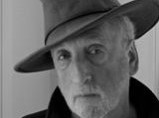Michael Steinlauf, Professor of History, Born 1947 to Polish Holocaust survivors. Raised in Brooklyn, now live in Philadelphia. Lots of time in France and especially in Poland. Involved in the Jewish revival there.
In your opinion, what importance, if any, does the existence of a Jewish state have to you personally and to Jewish people in general?
“The existence of a Jewish state has had great importance for me personally because my parents were Holocaust survivors who could almost as easily have gone to Palestine as to America. When I was I child I was led to believe that only in Israel could one live as a Jew, be a Jew, that Israel was the only possible alternative. The beautiful example of the sabra was constantly held up as a model. Gradually though I began to distance myself from this mythology. I eventually found a way to focus on the Jewish people, but in the Diaspora. The existence of a Jewish state has been central to everything Jews have done since World War II. Working all this out, understanding it, requires many books.”
Do you feel committed in some way to defend the future existence of Israel?
“Over the last few years, I have so despaired of Israel that I have more or less cut myself off from caring about its future.”
Do you affiliate yourself with a specific confessional division in Judaism? What is your view regarding the dominance of the Orthodox division in Israel religious establishment?
“I go to shul occasionally and I suppose I feel most comfortable in some Conservative or Reconstructonist setting. The dominance of Orthodoxy in Israel is a shande, but has gone on for so long that it’s hard to imagine any other situation.”
Do you feel morally responsible for Israel’s actions (such as its management of the Israeli-Palestinian conflict)?
“I wouldn’t say that I feel morally responsible, but I would say that when Israel, for example, destroys Gaza, I feel it more intensely than when ISIS cuts off heads.”
In your opinion, what is the main thing Israelis fail to understand about the reality of being Jewish outside of Israel?
“What I’ve discovered most recently is that they need us to show them how to be Jewish. All they know (and I’m talking about secular Israelis) is how to be Israeli.”
How would you describe Israel’s policy (formally and in practice) regarding its relationship with the Diaspora?
“If you mean the official policy of the state as expressed, for example, in the various youth initiatives, I would describe it as condescending. Lots of effort to give the kids a good time and not think too hard and, of course, propaganda, but not very high quality. The reality that I know based on the Israelis I come in contact with is that they feel free here, free enough sometimes even to be Jewish. And there are increasing numbers of them. Bright Israelis with young kids are deciding that Israel is not the right place to raise them.”
In your opinion, does Israel have an obligation to defend and help Jewish communities in need?
“Sure they do, and when they do it, it can sometimes be a beautiful thing. But then when such things are used as propaganda…”
Have you ever been to Israel? if you have, can you summarize your impression from the Israeli reality?
“I’ve been several times but not in the past ten years or so. The increasing contradictions of the Israeli-Palestinian conflict have kept me away. The refusal to deal seriously with the Palestinians on the part of Netanyahu, the growing Israeli racism, especially among young people, all amidst the insane violence throughout the Middle East, make it doubtful that I will return. In a word, Israel has broken my heart.”
Can you tell us a bit about the Jewish community in your hometown? Is it organized? Are there community activities?
“My corner of it is professional and generally on the left, though there’s a range of opinion about Israel.”

